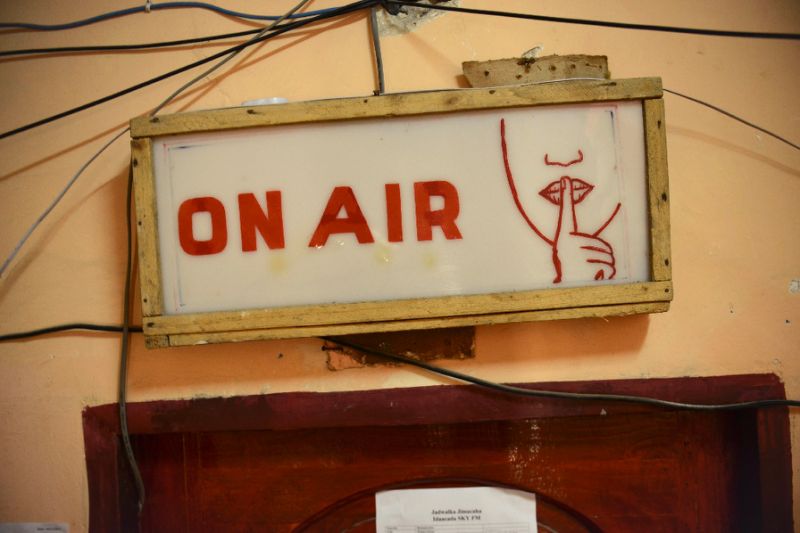
On Wednesday, August 25, 2021, the Right To Information (RTI) Act was signed into law by President Adama Barrow. The event comes decades after demand from two predecessor governments, the Right to Information( RTI) and Freedom of Information ( FOI) law.
So did the Right To Information law (RTI) and (FOI) usher in a revolution in the Gambia media fraternity? Yes! About decades, years, months, and weeks, the Fifth National Assembly session finally passed it after months of delay before President Barrow accented it into law.
The Freedom of Information (FOI) and the Right To Information( RTI) signing into law is a significant signature legacy for President Barrow and his administration and is notable for development and a happy feat achieved under Adama Barrow’s watch.
However, President Barrow’s most notable achievement and lasting impact on freedom of the press and Gambian journalists despite teetering on the edge of entrenched corruption. There are significant gains in freedom of the press and media freedom pillars of democracy.
Therefore, the Gambia Press Union members( GPU), other media practitioners, journalists, and the public should congratulate all stakeholders, the National Assembly and President Barrow for their commitment to the bill becoming a law.
The Act is primarily meant to allow citizens access to information by public offices to hold the government accountable.
Without a shadow of a doubt, President Barrow and his government’s courage, sense of responsibility, and commitment to good governance in passing this significant piece of legislation.
The Right to Information( RTI) and the Freedom of Information ( FOI) Bill, into law, strike a fundamental goal for democracy, transparency, media freedom, and access to the right to information is another impressive legacy from and for mPresident Adama Barrow’s unshakeable commitment to democracy, transparency, and the rule of law.
The president has demonstrated during his first term by signing into law the Freedom of Information Act (FIO) and Right To Information( RTI) into law, paving the way for the boisterous media environment that Gambian journalists enjoy today.
History will remember President Barrow for taking these firm legal and political decisions despite the political risks, putting the health of the Republic of the Gambia above parochial considerations, and advancing the cause of democracy and press freedom.
I want to join the multitude of Gambians and the Gambian media practitioners to thank the Gambia Press Union (GPU), the National Assembly, and President Barrow for their courage, sense of responsibility, and commitment to good governance in passing this significant law.
The purpose of the law is to implement the constitutional right to information held by any public institution and foster a culture of transparency and accountability in public affairs.
If properly applied, the Act could prove a critical tool in the fight against endemic corruption in public life.
Journalists and non-journalists in the Gambia essentially believe that the bill’s passage into law will make their work more accessible, especially in accessing official government data.
As a result, the Gambia has now joined in the first in Africa to pass an RTI law. South Africa, Angola, Zimbabwe, Uganda, Nigeria, Ethiopia, Rwanda, Liberia, Malawi, and Guinea have such laws.
Let us make democracy conversations meaningful, where development is felt, where impact matters, and where people can attest that their lives are changing for the better.
In this new Gambia, the people have opened the door to a new era of transparency in governance. They hope that this will lead to a domino effect across the globe.
The people must know what the government has done and do with their tax money and recognise their trust in the government to govern them.

The Gambian people wanted and had waited for the enactment of Access to Information, Right to Information, and Freedom of Information (FOI) laws that would benefit the media and the public, who need the information to make informed decisions and debate the matters affecting them.
These laws would allow them to help the government implement development projects in their areas. People will be empowered to extend the government’s rule to ensure that projects are planned and executed on time, with the necessary quality requirements.
The freedom of the press is meaningless if elected officials can legally keep their actions and performances a secret.
Indeed, the principle of the release of the media led to FOI laws. Since adopting the world’s first FOI law in modern-day Sweden and Finland in 1766, more than 95 countries have adopted such provisions.
The challenges to building on the gains of a new democratic dispensation from dictatorship to democracy include:
Passing the FOI bill as a legislative anchor.
He is making governance institutions capable of transforming transparency measures into accountability responses at all levels of engagement.
Scaling up access to information for the smallest communities means a more effective national ICT infrastructure and enhanced community outreach, especially to the poorest sectors.
The fact remains that the only commodity that is scarcer than meat in the Gambia is the truth. It is incredible how Gambians constantly receive contrasting and contradictory information from official government sources, suggesting an unacceptable level of incompetence or, worse still, intentional misinformation and deceit for propaganda purposes.
FOI can be defined as the right to access the information held by a public body and is deemed as one of the fundamental civil rights supporting democratic processes.
FOI is required to ensure that citizens can vote in an informed way and hold their governments accountable through public scrutiny.
The Official Secrets Act of 1922, in the interest of such concerns as national security and the public good, prevents journalists from publishing some information in the public interest.
This colonial law makes it very difficult to access information; there are many secrets in government that we still cannot access, and influential people in our economy and politics remain corrupt.
It is time to legislate the FOI Act and repeal and replace the Official Secrets Act, which curtails open access to information and allows government secrecy.
States should keep confidential information in line with the legitimate purposes and processes set out in international human rights laws. However, data from administrative and executive authorities, concerning, for example, regulations and public expenditure, should generally be accessible to everyone.
Hence, FOI helps provide oversight over governmental bodies and holds them accountable. This right strengthens the relevance of press freedom and independent journalism.
Journalists argue that any attempt to weaken their rights to protect their sources would discourage people with evidence of wrongdoing from approaching them.

The role of journalists as watchdogs of public accountability would, in turn, be weakened, and society would be the worse for it.
Press freedom is enshrined in the more general freedom of expression. No distinction is made between the average citizen’s right to freedom of expression and the journalist’s right to the same freedom.
The law only says that every citizen (including journalists) has the right to freedom of expression and that this freedom includes the right “to hold opinions and to receive and impart information without interference by public authorities.”
In a true democracy, the public is expected to access information on its governed. Such access to information is essential to the democratic way of life.
The tendency to withhold information from the public indicates unconstitutional, fraudulent, or corrupt practices by government officials. The denial of access to information and attendant widespread ignorance in society does more harm than good.
However, the level of secrecy in government is so ridiculous that every government file has the words “top secret” printed on its cover, even if all it contains are newspaper cuttings already in the public domain.
Many government officials say that the Official Secrets Act makes it an offense for civil servants to give out government information, preventing them from giving journalists and citizenry information.
The enactment of an FOI law in the Gambia would remove most of the legal impediments that journalists face in accessing information and records in the custody of government officials or government departments and agencies.
The law would neutralise the unfavorable provisions and consequences of restrictive laws such as the Official Secrets Act, the Criminal Code, and the Penal Code.
The FOI law would override the secrecy clauses that pervade many laws in the Gambia and provide protection from official reprisals for public officers who take the initiative to release information to the media in the public interest.
With the enactment of the law, therefore, public information ought to become more generally available to both the media and members of the public as it imposes an obligation on the government, its officials, departments, and agencies to provide public access to documents and information that would enhance the capacity of the media to report freely on the exercise of political power.
Moreover, where public officers are reluctant to disclose information or release documents, the media can ensure they are compelled.
Any journalist who truly wants to carry out investigative reporting will find the FOI Act a powerful tool for digging for information in government departments and agencies.
Moreover, it opens infinitely more possibilities for resourceful and creative reporters. However, I doubt that the FOI Act will be of any assistance to a lazy journalist. It does not eliminate the necessity for tenacity and the rigorous checking of facts.
If anything, the enactment of the law imposes additional responsibilities on the media. Since the excuse of having no access to information and records is no longer available to the press, journalists will increasingly be subject to higher standards of accuracy, fairness, and responsibility in their publications or broadcasts.

The reading, viewing, and listening public, to which the media are accountable, certainly have higher expectations.
Journalists, therefore, must carry out more thorough research and investigation and check their facts more rigorously before publishing.
Interestingly, FOI laws also protect privacy under the Freedom of Information and Protection of Privacy Act.
The law guarantees every citizen access to information about government actions yet ensures their personal information is confidential (Personal health records are none of anybody’s business.)
The Right to Information Act is the latest law that has codified the “freedom of speech and expression” guaranteed under Article 19(1)(a) in terms of the right to receive information.
This law consolidates all the provisions facilitating access to information in different legislations. In addition, FOI has revolutionarily changed the so-called law of privilege.
The government used to hold information in secret as a matter of principle and be disclosed only exceptionally.
Since the FOI law, the rule is disclosure and exception in withholding information. FOI overrides the Official Secrets Act of 1922 and all other legislation that contradicts or conflicts with the FOI Act.
The provisions of privilege in the Gambian Evidence Act must give way to the disclosure of information. Official documents about state affairs; cannot be withheld by the state as privileged documents under the Evidence Act but must be disclosed under the Right to Information Act.
By Alagi Yorro Jallow











Recent Comments